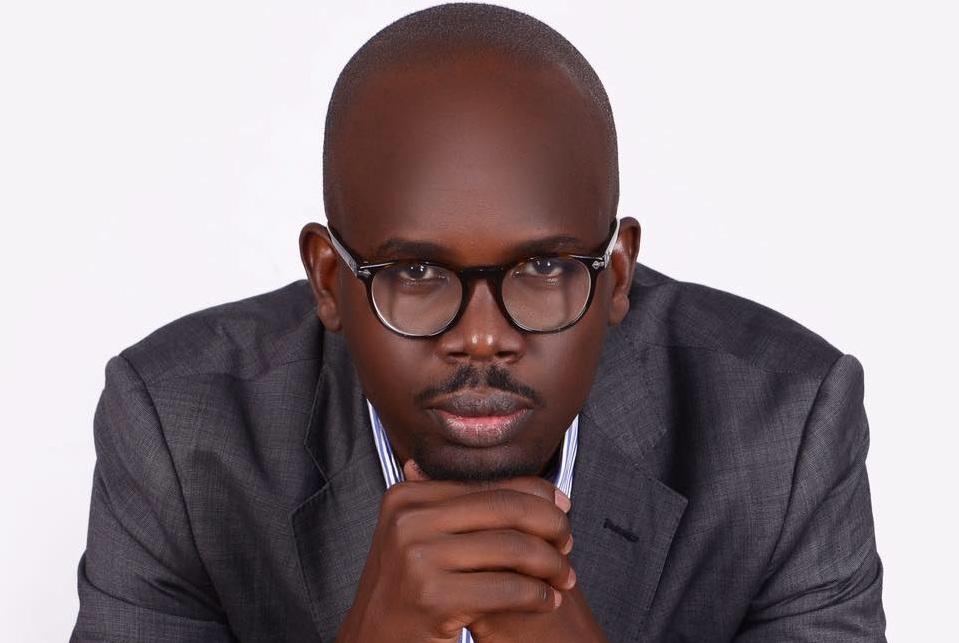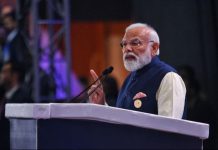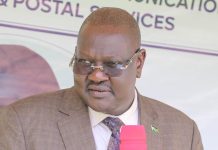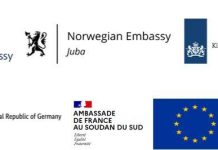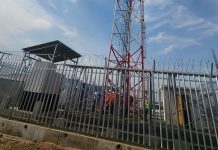Africa-Press – South-Sudan. South Sudan has been through calamities since its independence; there’s hardly been a year that passes without this young nation experiencing a tragedy. Last Sunday (June 19th) was no exception as the country woke up to the shocking news of Manawa Peter Gatkuoth Gual’s death; the former minister of Water Resources & Irrigation died in Cairo – Egypt. Manawa died after a short illness; he felt a sharp pain in his chest on Wednesday (June 15th); on Thursday, a decision was made to fly him out to Cairo for further medical attention.
Just a day after his arrival, he breathed his last breath early morning on Sunday. Before his untimely demise, Hon. Manawa oversaw a susceptible file dealing with Nile water; that file has enthused a hot debate amongst the South Sudanese, especially the issue of resurrection (re-digging) of Jonglei Canal & Nam River dredging projects. These two subjects brought an unusual controversy and confusion, but the honorable minister was determined to address and make a clarification to the public. It is no secret that the immense pressure took its toll on the deceased minister
Hon. Manawa was -by the testimony of his peers- an exceptional man; he came to fame in the nineties as a student leader. During his secondary school years at Sheikh Lutfi Secondary School in Rufaa, he was a highly talented footballer, poet, journalist, political activist, and an eloquent orator. His political activism continued through his university years at Omdurman Al Ahlia University, where he was the most prominent cadre of the African National Front (ANF) & United Democratic Salvation Front (UDSF). At Omdurman Al Ahlia University, he studied English Language.
During those years, Manawa became famous as an eloquent speaker in political debates in the Sudanese universities; he spoke and wrote his poetry in fluent Arabic. Still, most importantly, his debate style made him stand out as he made jokes and was brilliant at keeping the attention of his audience. But even more significant than that, Manawa used compelling logic while showing respect to his opponents; to him, politics was “the art of the possible, the attainable – the art of the next best.” Because of his outstanding activism, Manawa earned the respect of his opponent before his friends.
As a student leader, he was moderate and didn’t play into the politics of demonization of the opponent; instead, he confronted argument with an argument and ideology with an ideology, and as such, through his leadership, he averted the introduction of violence into the Sudanese universities during a sensitive period when South Sudanese were divided because of breakup in the liberation struggle
Manawa’s national contribution continued. In 2010 he was appointed Minister of Infrastructure in Jonglei State, a post he held until 2013. When the war broke out because of disagreement between the SPLM leaders, when the warring parties signed the current peace agreement (R-RCISS), Manawa was appointed Minister of Water Resources & Irrigation, a post he held until his death. During his tuner as the national minister of Water Resources & Irrigation, he bravely handled one of the most sensitive files dealing with the issue of Nile water. This subject brought tension abroad and at home, but he did not blink an eye. His counterparts respected him, and his bosses praised his exceptional performance (ref to President Salva Kiir, Dr. Riek Machar, & Egyptian President’s Spokesperson’s statements); with his death, I can confidently say South Sudan has lost a political genius & an outstanding leader
Paul Adong Bith, who died in Dubai a few hours after the death of Manawa and far away at more than three thousand kilometers from Cairo, was another trailblazer and a leader in his own right. Paul Adong was an engineer, business executive, technocrat, and successful businessman. I first met him around 2009 in Khartoum when he was a field engineer at Schlumberger, a global giant in the oil & gas industry. I immediately noticed that I had just encountered an ambitious young man, and I could also tell he aspired for high quality.
His presence could fill the room and intimidate many people. I was in contact with him while I was studying an MBA course at Hult International School, and he was studying Oil & Gas Management course at Edinburgh University in Scotland. Like many in my generation, I was inspired when Eng. Paul was appointed as the youngest managing director of NilePet (South Sudan National Oil Company).
With his arrival at the helm of NilePet, Eng. Paul brought attention to an institution that existed for a long time but was unknown to many South Sudanese; he was able to bring clear vision, leadership, and much-needed reforms that should have led to the nationalization of the oil sector. He remains one of the most notable managing directors ever to lead NilePet. I had so much respect for him as a national figure, and with his demise, South Sudan has lost a young talent who could have served our nation
What’s in common between these extraordinary leaders is that both were good at what they did, and any of them made a name for themselves. While Manawa was born into the family of late Peter Gatkuoth Gual, a political powerhouse, he chose his path. Eng. Paul, on the other hand, worked hard and earned himself a name
I admit people die everywhere, South Sudan included, but here is why I think the death of these two young leaders is painful. Firstly, like everywhere, the death of young people is an awful experience; in our society, young people are expected to live long to bury the old and not the opposite. The death of young people, especially the brilliant among them, puts the future in limbo and creates a leadership gap as it takes years to prepare a leader.
Secondly, I believe death is inevitable, but some deaths can be preventable or could be delayed. We could have averted these deaths had our country’s leadership invested in proper health facilities. Preliminary information reveals that both gentlemen suffered from medical conditions that could have been attended to locally or could have been stabilized before traveling abroad for further treatment.
Our country has some of the best doctors in the region, but the lack of adequate health facilities and poor management has already caused us many dear lives, and the counting continues; we simply don’t know who the next victim will be. I’ve witnessed countless instances where people died here in Juba just because there’s not a single functioning emergency ward in town; an emergency ward can help stabilize a life-threatening condition until when a better health facility is reached
I often find it hard to understand why we live in our country like visitors!? Our political leaders stay in hotels, send their kids to study abroad, and seek medical treatment in foreign countries! Sadly, burial is the only event that takes place at home. Since no one knows when he will need medical attention, people should learn from previous experiences and invest in what matters.
For More News And Analysis About South-Sudan Follow Africa-Press

